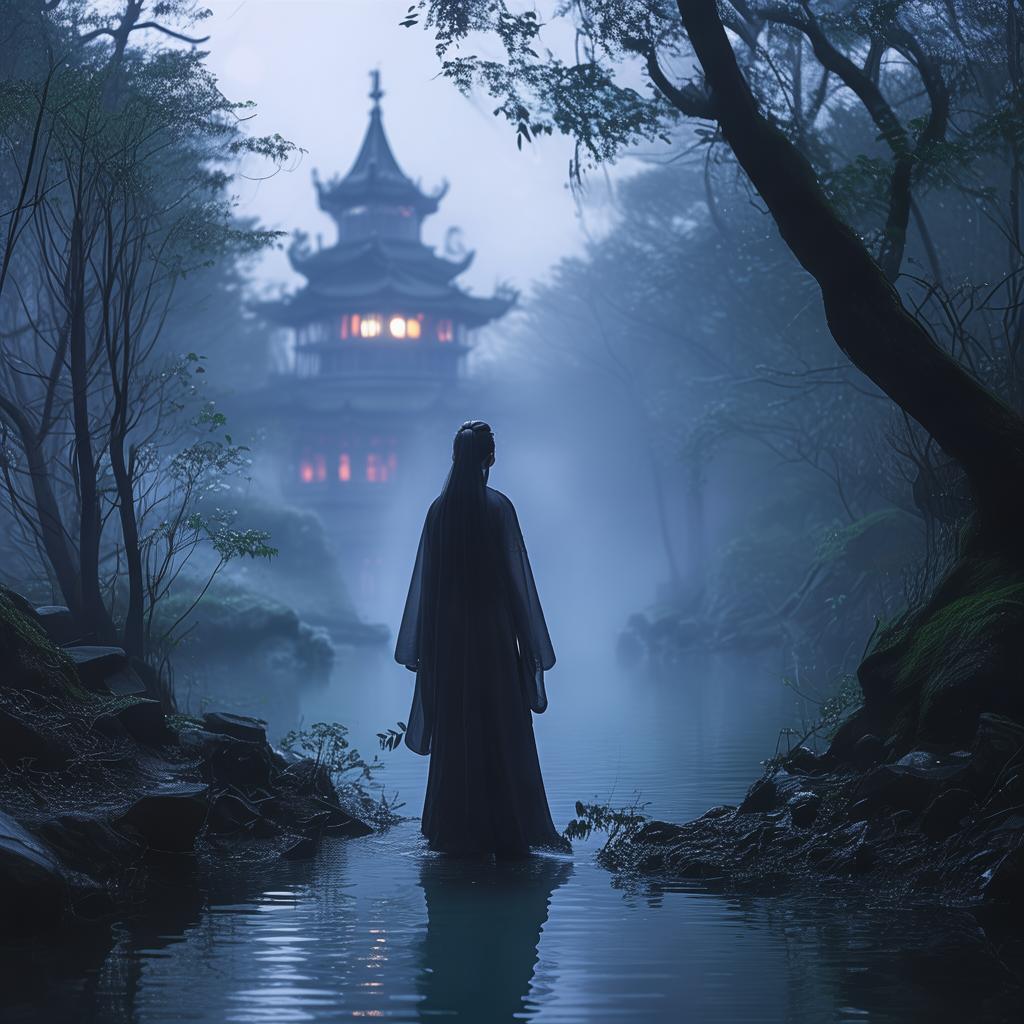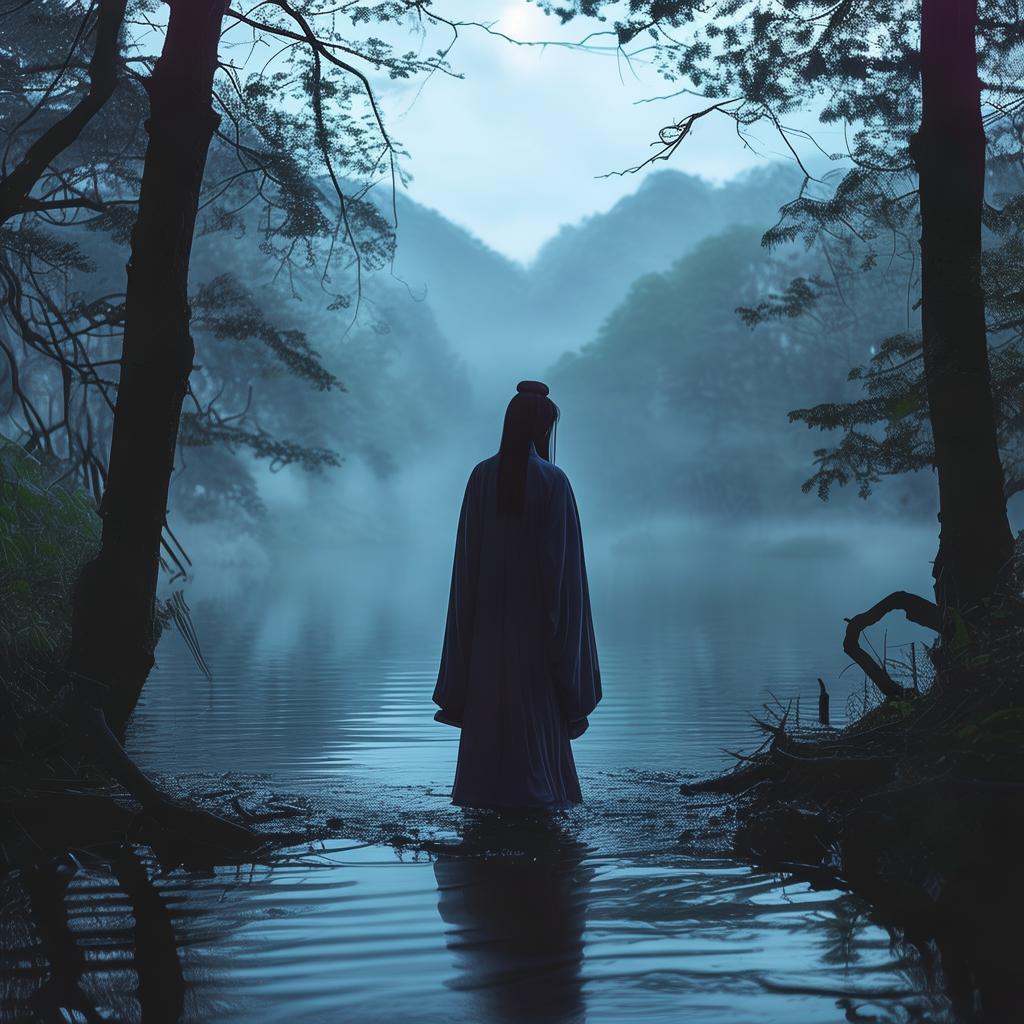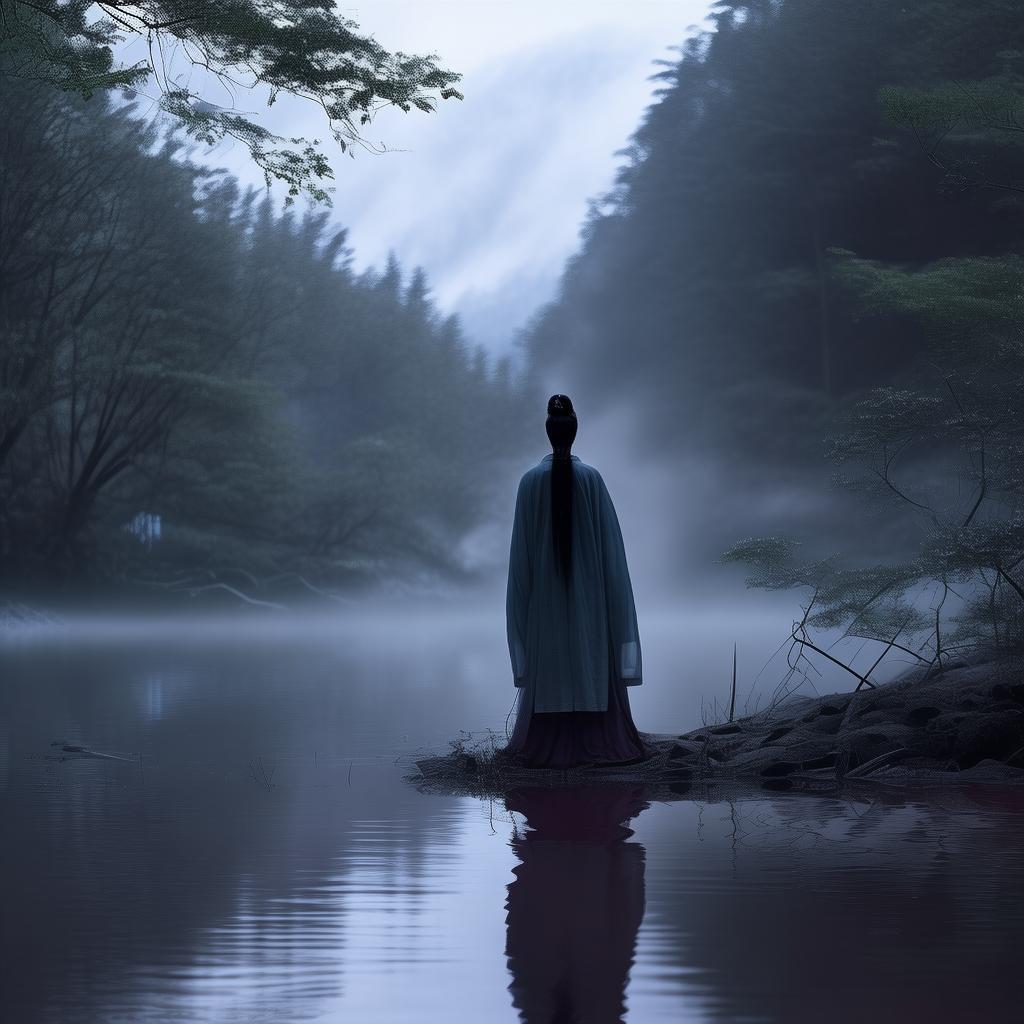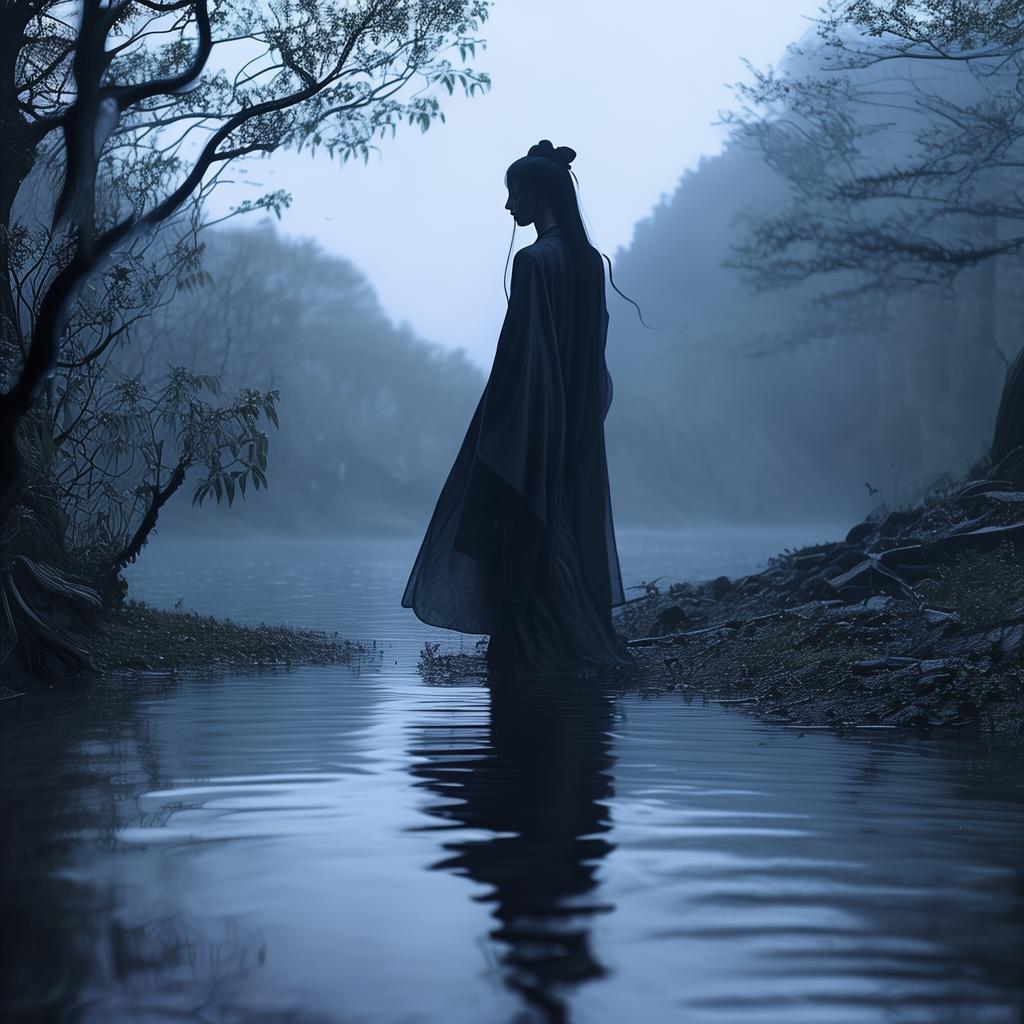Corpse's Whispers: The Liao Zhai Mystery of the Corpse That Knows Too Much
In the heart of the verdant mountains of ancient China, there lay a small, secluded village that time seemed to have forgotten. The villagers spoke in hushed tones of an old, abandoned temple on the outskirts of their community, a place where no one dared to venture. The temple, once a beacon of faith and hope, had become a harbinger of doom and despair.
The tale began with a monk, an enigmatic figure known only as Master Hua, who had taken residence in the temple after a great calamity had befallen the village. Master Hua was said to possess the ability to communicate with the spirit world, and his presence brought a sense of unease to the villagers.
One fateful night, a young villager named Li, driven by curiosity and a desire to prove his bravery, decided to explore the temple. As he stepped inside, the air grew cold, and the scent of decay filled his nostrils. He stumbled upon an ancient coffin, its surface covered in cobwebs and dust. Without warning, the lid creaked open, and from within, a hand emerged, pale and twisted.
Li's scream echoed through the temple, and the villagers rushed to the scene. They were horror-stricken to see the remains of a monk, his eyes wide with terror, his mouth agape as if he had been wrenched from life before he could speak. Master Hua, upon hearing the commotion, arrived at the temple and immediately recognized the remains as those of a monk who had gone missing years ago.
Master Hua began to investigate, and it was then that the villagers learned of a legend that had been passed down through generations. The monk, it was said, had been cursed by an evil spirit, bound to his body until the truth of his death was uncovered. The spirit had taken the monk's knowledge of a dark secret that could shatter the very fabric of the village's existence.
As Master Hua delved deeper into the monk's life, he discovered that the monk had been a guardian of a hidden treasure, a treasure that had been stolen by a notorious bandit who had left no trace of his whereabouts. The bandit, it was rumored, had been killed in a fierce battle, but his body had never been found, leaving his soul to wander, bound to the monk's spirit.
Master Hua, with the help of Li and a few other villagers, set out on a perilous journey to find the bandit's remains. Along the way, they encountered a series of chilling incidents, each more terrifying than the last. The spirit of the bandit, now free from the monk's body, sought to exact revenge on those who dared to disturb its slumber.
The group's search led them to a desolate cave, deep within the mountains, where the bandit's body was rumored to be interred. As they approached the entrance, the air grew thick with an eerie silence, broken only by the sound of their own breath. Inside, the cave was a labyrinth of shadows and whispers, and the bandit's spirit seemed to be everywhere, watching, waiting.
In the heart of the cave, they found the bandit's remains, encased in a sarcophagus of ice. The spirit, recognizing the monk's successor, attacked with a fury that could only be described as demonic. Master Hua, using his knowledge of ancient rituals, managed to banish the spirit, but at a great cost. The bandit's spirit had left its mark on Master Hua, binding him to the monk's curse.

The villagers, now united in their quest, worked tirelessly to break the curse. They sought the help of a wise old woman who lived on the outskirts of the village, a woman who claimed to have the power to communicate with the spirit world. With her guidance, they performed a series of rituals, using the monk's own sacred texts and artifacts.
As the final ritual was completed, the villagers watched in awe as Master Hua, now transformed into the monk, was able to communicate with the spirit of the bandit. The bandit, recognizing the monk's successor, agreed to release him from the curse, but only if the villagers would ensure that the treasure was used for the greater good of the community.
The treasure, it turned out, was not gold or jewels, but a scroll containing ancient wisdom and knowledge that could bring prosperity and peace to the village. The villagers, with Master Hua's guidance, used the scroll to revitalize their crops, improve their infrastructure, and foster a sense of unity and harmony.
The story of the Corpse That Knows Too Much became a legend, a tale of courage, sacrifice, and the triumph of good over evil. Master Hua, now free from the curse, continued to live in the temple, serving as a guardian of the village and a beacon of hope for those who sought to understand the mysteries of the spirit world.
The Corpse's Whispers: The Liao Zhai Mystery of the Corpse That Knows Too Much is a chilling tale of ancient Chinese folklore, a story that will forever be etched in the hearts and minds of those who dare to uncover the secrets hidden in the shadows of history.
✨ Original Statement ✨
All articles published on this website (including but not limited to text, images, videos, and other content) are original or authorized for reposting and are protected by relevant laws. Without the explicit written permission of this website, no individual or organization may copy, modify, repost, or use the content for commercial purposes.
If you need to quote or cooperate, please contact this site for authorization. We reserve the right to pursue legal responsibility for any unauthorized use.
Hereby declared.









